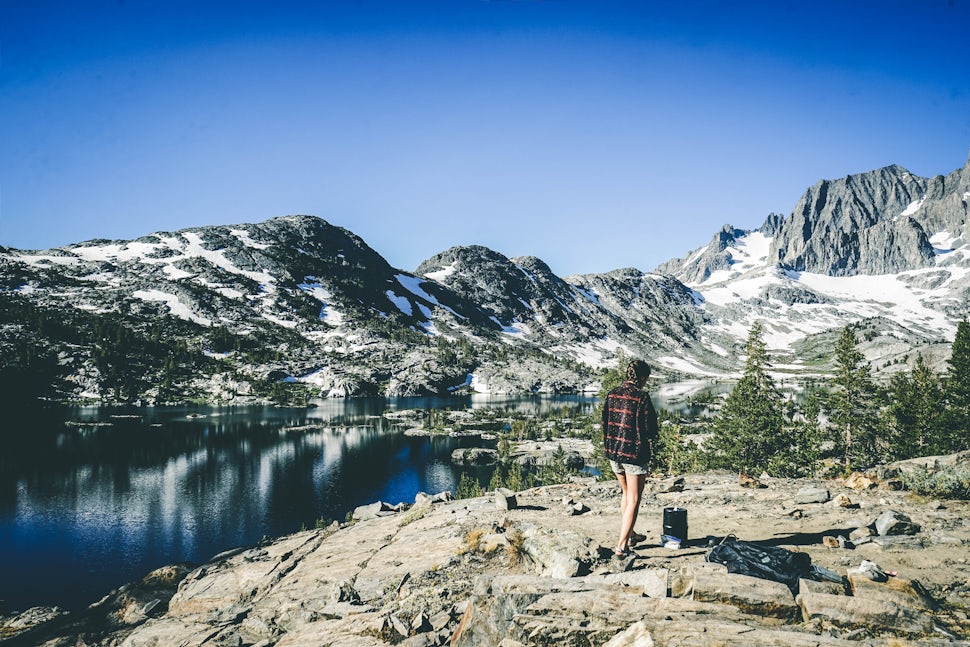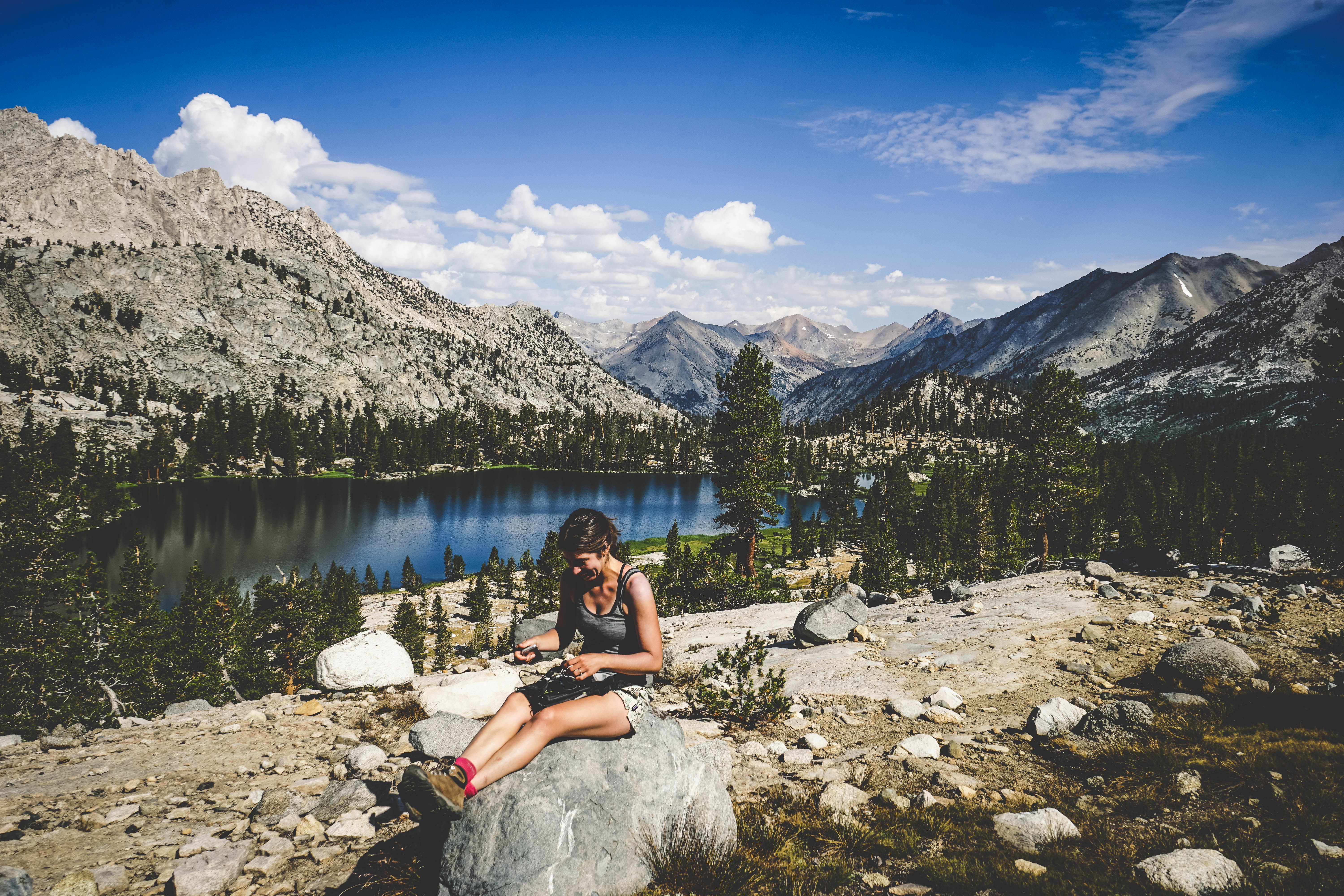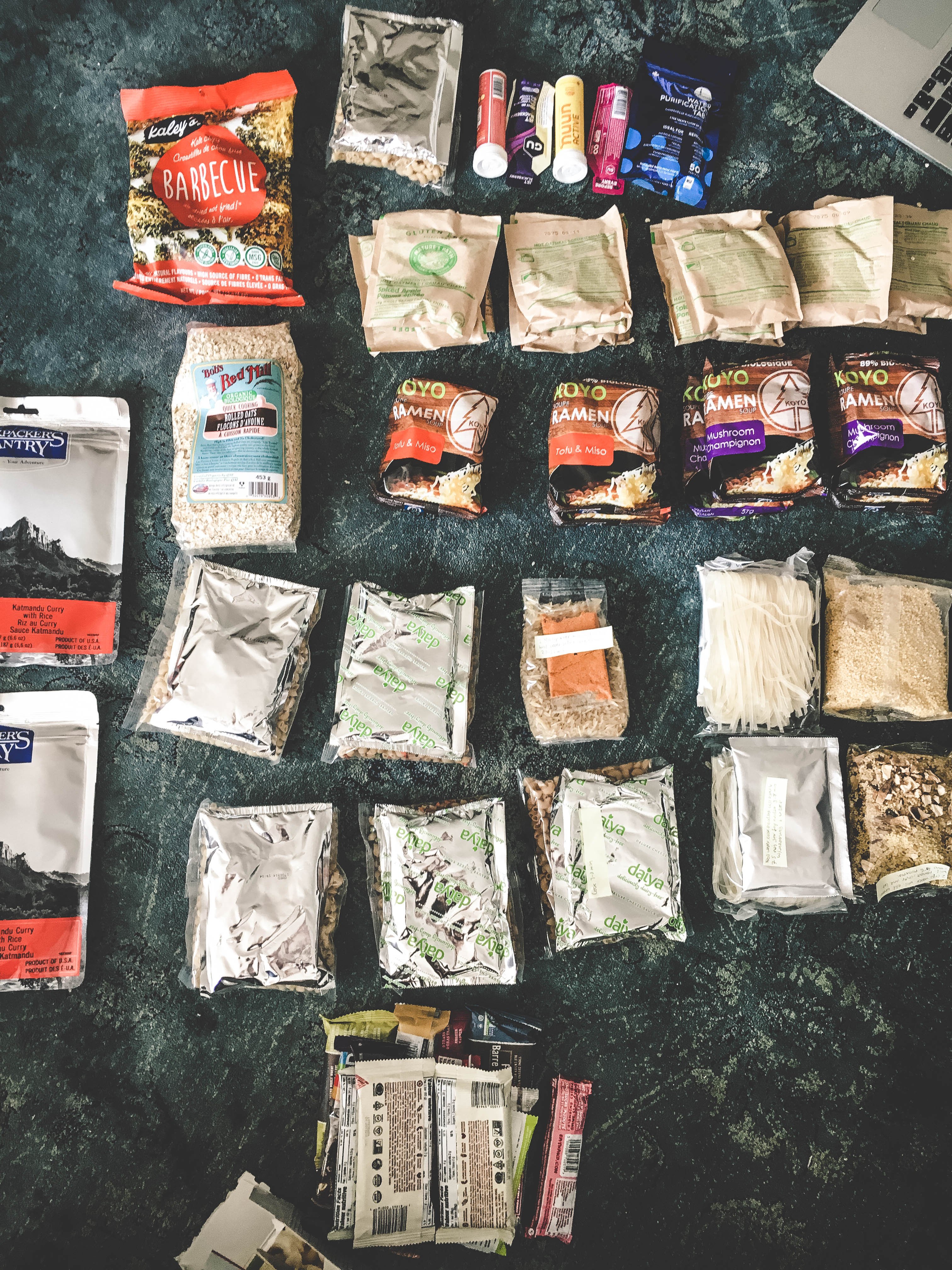What 20 Days of Backpacking Taught Me About Mindful Eating
You've heard lots about "mindful eating", but backpacking can really drive that point home.


I hiked for 20 days along an incredible trail in the California Sierra’s called the John Muir Trail. It is a section of the famous PCT (Pacific Crest Trail) that stretches from Mexico to Canada (represented in the novel and film, Wild) with an additional section in the beginning and end (Yosemite section in the beginning and Mt. Whitney at the end).
For 20 days, I ate nothing but trail food, lots of it packaged, but for the most part, it was REAL food.
I carried food for the first 10 days in my backpack and then picked up a bucket of food at a horse ranch in the middle of the wilderness (they carried in these buckets on horseback from the nearest post office) that I packed with similar meals to last me the remaining 10 days.

With such a MASSIVE change from our conventional way of eating - which I can define in two words: convenience and excess - I have to say my relationship and perception of food has changed substantially.
Here are my takeaways:
1. You begin to think of food as fuel.
I have heard the saying “food is fuel” as some way to monitor and think twice about what we put in our bodies, but it’s really hard to understand in the environment many of us live.
In our day-to-day lives, we never have to think about fueling for high-energy output activities like some marathon runners and athletes do.
But I got my first taste of it. I had a limited number of meals. I couldn’t eat 2 meals one night if I was hungry. I also couldn’t eat my massive pasta meal when the next day was an “easy” day; I needed to save that one for when the next day would be a challenging climb. I didn’t purchase Clif bars because they have never appealed to me, but the sight of free-for-all Clif bars when we had to refuel was a godsend. I NEEDED those on hard climb days so that I could maintain my energy.
Now that I am back in the real world, I still think this way. It doesn't make sense for me to eat a tub of cashew-based ice cream if I've been sitting around all day. During those resting days, I should also give my digestion system a rest. However, if I have just completed a workout, I can enjoy the overly sweet smoothie I like to have with dates and bananas or the ice cream if that's what I'm wanting.
2. Chewing MATTERS.
On the last 10 days of the hike, I didn't have big lunches. I had 3 bars in total to eat in between breakfast and dinner. This was different than the first 10 days, where I had beans, rice, and vegan cheese to fill in tortillas in whatever combination I was feeling that day.
I remember eating my first bar of the day at a break we were taking and it was gone in literally 3 seconds. I actually couldn't even remember eating it; I ate it so fast. I was so disappointed as I drank some electrolyte water to fill my hungry stomach! For every bar after that, I began to THINK and maybe even OVERTHINK about each bite, noticing the chewing and each swallow. I could make a bar last 20 minutes this way and somehow it was more satiating!
Now, even though I am back in the real world, I am actively trying to avoid scarfing down my food, thinking back to how good it feels to take my time, enjoy it, and CHEW it. And like the experts say, it helps me realize that I am full sooner than it would if I am just trying to finish the plate.
3. Paying attention to your body can solve all our problems.
I learned SO MUCH about my body in 20 days and actually couldn't believe it took me that long. For one, I learned that my body doesn't handle protein well so now I don't force-feed myself the recommended amount and make myself sick. It's sad it took me till now to feel okay with that. And second, my body needs more fats than I feed myself. You should see my meals now. I drench bread in olive oil before adding a whole avocado on top and I embrace the fact that this works for me.
So, it may be hard at first, but after you eat something, check-in with your body. Maybe fried food doesn't sit well with you. Maybe your body can handle lots of sugar, but not a bag of chips. You can create your own rules that work for you rather than listening to someone else and doing what works for them.
4. Overindulging is the WORST.
After 20 days of relatively good food, I went to the supermarket and bought FRUIT (are you surprised?), granola, almond milk, and 2 bags of chips. Everything was good until we got stuck on a bus for hours getting back to our car and I ate a piece of fruit and 2 full sized bags of chips. I was SICK. Like throwing up, acid coming up and lining my throat-sick. I had a bad taste in my mouth the whole ride back and told myself I would never eat chips ever again.
However, the chips weren't the problem. It was the overdoing of said chips. The lesson I took from this was to take it easy when I feel like indulging. If you set aside the amount that you would feel good about eating and stick to that, you will realize that you aren't depriving yourself, but just preventing a stomach ache.
So, hopefully, not everyone needs to go on a 20 day trip to become a more mindful eater AND hopefully, my experience has shed some light on a different way to think about eating mindfully.
I know ever since this trip, I have been drawn to learning more about eating as an athlete, even in normal, everyday life.
Let me know what you think about mindful eating and if you have any tips!
We want to acknowledge and thank the past, present, and future generations of all Native Nations and Indigenous Peoples whose ancestral lands we travel, explore, and play on. Always practice Leave No Trace ethics on your adventures and follow local regulations. Please explore responsibly!
Do you love the outdoors?
Yep, us too. That's why we send you the best local adventures, stories, and expert advice, right to your inbox.








